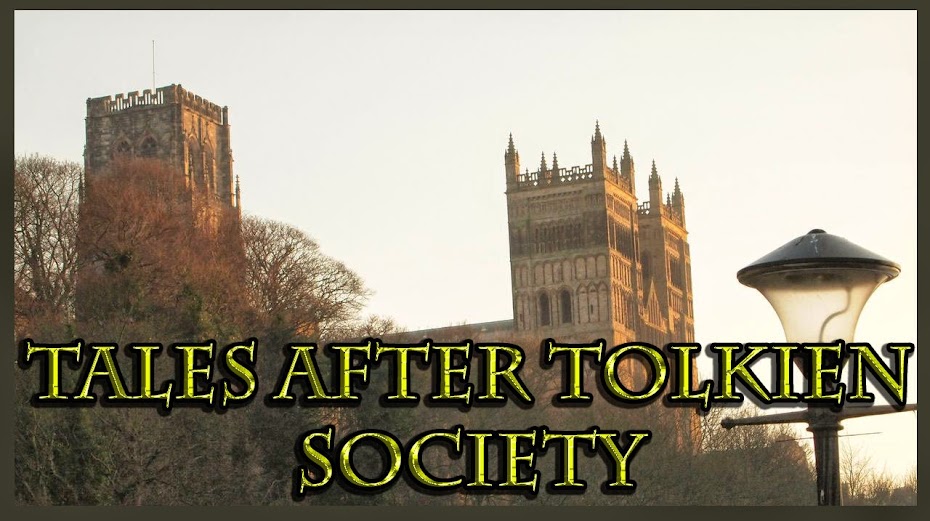A BBC report notes that one Steven Payne of Petersfield is undertaking a pilgrimage mimetic of one taken by an Italian teacher in 1365, going with papal blessings from Southampton to Canterbury. The report makes much of the efforts Payne has gone to to make his pilgrimage authentic, noting among others that he will not sleep in any buildings not dating back to 1365 and that his travel kit, with only a few exceptions, is true to the period (which is mislabeled, as it calls 1365 part of the 13th century rather than the fourteenth). The article joins a number of others that have received attention in this webspace--this one, this one, this one, this one, and this one--that suggest continued interest in the medieval, which is a good thing for the Society, as it implies that there will remain much work to be done.
I am glad of such things, to be sure, but I am concerned about possible inaccuracies in Payne's presentation. The article notes that his clothing--and I am impressed by the commitment to period dress down to the underclothes--is based on a peat-preserved Scandinavian body. The body is not given a time-frame or an identification of finding, and so, given how the report is framed, it could be a body from a wholly different time than contemporary with Chaucer, potentially rendering Payne's recreation inaccurate. Similarly, the astonishing lack of alcohol in his described kit rings as other than medieval, given what is described of travelers' practice and what is known of sanitation standards of the time.
Perhaps the matter is merely one of reporting, rather than Payne misapprehending source materials. In many ways, reporting errors would be worse. If it is only Payne who is wrong, then it is one person; if the report is wrong, coming from what many regard as a reliable source, then more people are likely to be led into error. Inaccuracies in depictions of the medieval are problematic for more reasons than the simple inaccuracy, as has been attested repeatedly in this webspace and elsewhere; they conduce to a notion of the medieval as not only less technologically advanced than our present, but also less intelligent in several of the ways that intelligence is commonly measured. The simple truth is that people were no less intelligent then than now; they were misinformed in many respects, owing in large part (although not exclusively) to a lack of refinement of measuring devices, but many people now are just as ill-informed and without the valid reason of lacking access to data and the ability to collect it. When the medievals are presented other than our (continually developing) best understandings of how they were, we do a disservice to people no less human than we, and we do a disservice to ourselves, creating a false impression of "how far we have come" in the centuries since and a concomitant overestimation of our own capabilities and refinement. Neither serves us well.
Wednesday, December 16, 2015
Tuesday, December 15, 2015
About the Society Blog and Website
Thanks to the efforts of Carol Robinson, the Society has a WordPress site in place of its old website (the news is a bit dated, I know). As many will be aware, WordPress is at its core a platform for blogging, and the thought occurs that consolidating this blog into the website might be worth doing. Since I administer the blog (if perhaps poorly), I thought it appropriate that I would poll the Society membership for thoughts on whether or not to do so. A survey asking after opinions is linked below and will remain open through the end of the year. Results will guide what happens with the Society's online presence moving forward.
Thank you for your advice and support. Please continue to send in submissions; I will be happy to post them, wherever they may need to go.
-Geoffrey B. Elliott
Vice-President (USA), Tales after Tolkien Society
The Poll: http://goo.gl/forms/Qx9MKOyFPs
A copy of this announcement appears on the Society webpage, as well.
Thank you for your advice and support. Please continue to send in submissions; I will be happy to post them, wherever they may need to go.
-Geoffrey B. Elliott
Vice-President (USA), Tales after Tolkien Society
The Poll: http://goo.gl/forms/Qx9MKOyFPs
A copy of this announcement appears on the Society webpage, as well.
Subscribe to:
Posts (Atom)
